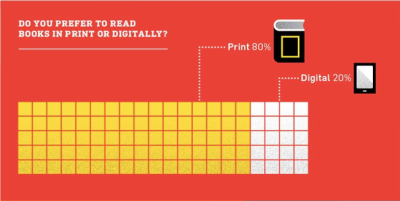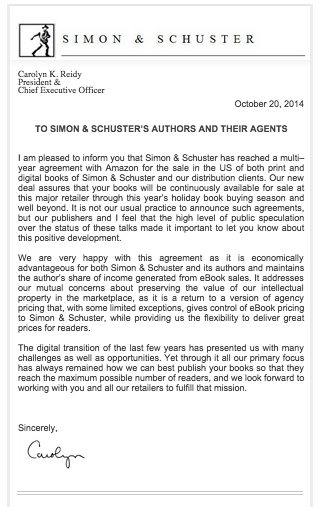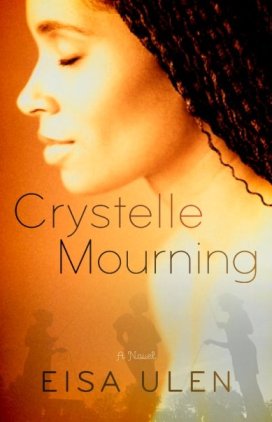 Self-published Authors, Twitter could turn into an immediately measurable revenue stream for you. Gumroad.com enables artists to upload their work and sell directly from their Twitter accounts via a Buy button. Traditionally-published scribes may be able to take advantage of this depending on their publisher. Hachette is experimenting with Twitter sales, piloting their partnership with Gumroad using a few authors with huge twitter followings. There’s no news yet about Hachette’s twitter sales performance (they announced the partnership December 10, 2014), but we’ll be monitoring this. Nice move forward for Hachette, by the way, after a bruising 2014 locked in battle with Amazon over ebook pricing.
Self-published Authors, Twitter could turn into an immediately measurable revenue stream for you. Gumroad.com enables artists to upload their work and sell directly from their Twitter accounts via a Buy button. Traditionally-published scribes may be able to take advantage of this depending on their publisher. Hachette is experimenting with Twitter sales, piloting their partnership with Gumroad using a few authors with huge twitter followings. There’s no news yet about Hachette’s twitter sales performance (they announced the partnership December 10, 2014), but we’ll be monitoring this. Nice move forward for Hachette, by the way, after a bruising 2014 locked in battle with Amazon over ebook pricing.
Tag Archives: hachette
Amazon v Hachette Resolved. Now What?
 Last week, Amazon and Hachette resolved their costly standoff. By many accounts, forthcoming books by Hachette authors are again available for pre-order, and current titles will again be shipped without delay. All is back to normal — normal being publishers and writers remain vulnerable to one distributor / bookseller in control of the industry’s revenue generation.
Last week, Amazon and Hachette resolved their costly standoff. By many accounts, forthcoming books by Hachette authors are again available for pre-order, and current titles will again be shipped without delay. All is back to normal — normal being publishers and writers remain vulnerable to one distributor / bookseller in control of the industry’s revenue generation.
Less than a month after Simon and Schuster CEO Carolyn Reidy expressed happiness about the “economically advantageous” multi-year deal her company reached with the e-tailer responsible for over 30% of book sales, Hachette CEO Michael Pietsch announced an agreement with Amazon too, saying, “It gives Hachette enormous marketing capability…” Thanks to “a source with knowledge” of the Simon and Schuster deal, the New York Times offers some insight into the Amazon-Hachette compromise, saying it gave the publisher “control over most of its pricing but offered incentives to sell at lower prices. Amazon got increased co-op funds, the payments for placement on the retailer’s website.”
In the same piece, Forrester Analyst James L. McQuivey rightly points out, “in the end this all cements Amazon’s ultimate long-term role in this business, which will only put Hachette right back in this situation every time they are up for renegotiation.” To be clear, the problem is not Amazon, in my opinion; it’s the current industry business model that enables one or two booksellers to control revenue generation for the industry, as well as the lack of progressive ideas on the part of publishers and writers. Amazon is only capitalizing on the vacuum.
Authors United President Douglas Preston says their fight is not over. The coalition of over 1,000 bestselling writers specifically formed to organize writers in resistance to Amazon’s negotiation tactics with Hachette is reportedly working with the Authors Guild to draft an appeal to the Justice Department in hopes the government branch will launch an antitrust investigation on Amazon.
Even as they sharpen their swords for this battle, I would love to see these bodies arm writers to take advantage of the technology that has enabled Amazon to shake the century old publishing and bookselling businesses in just under 20 years. For too long, authors have taken a talent (versus business partner) approach, allowing a retinue of go-betweens and third-parties to handle the business of our livelihood.
I’ve said this before, but it bears repeating, especially now that the business is in this malleable evolutionary phase:
Writers need to take more ownership of what happens after the publishing deal is signed. We can’t afford to look at our work as solely “the unique, quirky creation of a lonely, intense, and often expensive struggle”. The businesses of book publishing and book selling are built on the creators of books, and we can no longer afford to be handled as “the talent”.
We should have first signatory power of our advances. Agents should provide receipts for all postage and handling and other expenses generated to sell our books to receive reimbursement. Publishers should deliver similar transparency enabling writers to be clear about how their royalty checks are calculated. We should be in the meetings sharing thoughts about how our work should be marketed, and to whom. We should also have more understanding and ownership of the retail deals and outlets associated with our work.
At the height of the Hachette-Amazon impasse, Stephen Colbert leveraged his television platform to direct readers to shop at indie bookseller Powells, and, in the process, helped make imprint mate Edan Lepucki’s novel California “one of the most preordered debut titles in Hachette history”. What if authors with similar or greater reach fulfilled book orders directly or via a third party they had individually set deal terms with?
How different would the Amazon-Hachette dispute have been if J.K. Rowling had pulled a Taylor Swift and removed her books from Amazon to sell them herself, via a distributor of her choice, or via her publisher? What if publishers fulfilled orders directly from their warehouses, or scrapped warehousing and opened branded online bookstores as publishing strategist Bruce Harris suggested in an interview with Publishing Perspectives?
I realize there are contractual parameters in place that make some of these prescriptions impossible, naive, or both; and obviously, publishers, agents, and booksellers have expertise that cannot be discounted, but I think these are the questions authors and author advocacy groups need to begin to ask and answer with the industry in such flux. The goal needs to be evolving the current model so writers have more agency over their work and their revenue so when spats and shifts happen, we’re not left only with the option of airing our frustrations via traditional or social media, watching helplessly from the sidelines.
Simon and Schuster Cuts Multi-Year Deal With Amazon
What does Simon and Schuster’s deal with Amazon mean for the e-tailer’s dispute over ebook pricing with Hachette?
The New York Times says: “Amazon told Hachette it wanted e-books to be cheaper while also reportedly seeking a greater share of the revenue from each sale. The negotiations were widely viewed by traditional publishers as an attempt to establish a new benchmark that would increasingly diminish their roles.
Perhaps Hachette’s refusal to commit helped inspire Amazon to make an agreement with Simon & Schuster. If so, a deal might inspire a settlement with Hachette. A Hachette spokeswoman declined to comment.”
Hugh Howey asserts: “There’s another advantage to this deal for Simon & Schuster. Pressure for higher ebook prices comes from print retailers, who don’t want to be undercut. Publishers aren’t stupid; they know they can sell more ebooks at a lower price and make money doing so, but they worry about harming existing partnerships. S&S can now price some ebooks high, knowing that Amazon has room to discount, and they can go to the buyers at their major accounts with the digital list price to show their support. That is, the blame for the eventual lower sale price will fall on Amazon, which brick and mortar outlets already loathe, and S&S gets to look like a champion. Meanwhile, they are giving up a percentage of margin to help Amazon discount. Everyone wins. Especially the customer.”
The Wall Street Journal reports: “Douglas Preston, a Hachette author who heads Authors United, a group of more than 1,500 writers that has publicly pressured Amazon to reach a deal with Hachette, said he wants to know whether Amazon has offered Hachette the same terms as Simon & Schuster.”
CNN.com probes: “Could both sides have really come away feeling good about the result? Maybe so — it could be a compromise in the best sense of the word. But it won’t quiet the complaints about Amazon’s behavior, most recently from The New York Times columnist Paul Krugman in a Monday op-ed.
‘By putting the squeeze on publishers, Amazon is ultimately hurting authors and readers,’ Krugman wrote. He concluded that ‘what matters is whether it has too much power, and is abusing that power. Well, it does, and it is.'”
Young People Say They'll Pay More For Print than E-Books

Part of the results Adweek yielded from a straw poll of 18-34 year olds in New York City.
Last week, Adweek.com posted results from a millennial-on-the-street poll that contradict the cliché of the “smartphone-addicted twentysomething who spends her free time posting selfies on Instagram, sharing BuzzFeed lists on Facebook and creating socially conscious hashtags on Twitter”. Nearly two weeks earlier, The Bookseller announced findings from their own poll. Both showed that young people (in the US and the UK) prefer reading print books to digital. Perhaps more telling for the future economics of book writing and publishing though, is that the millennials surveyed said they are not willing to pay print book prices for e-books.
“In our research,” explained Luke Mitchell, Director of Voxburner, the company that conducted the survey for The Bookseller, “70% said that £6.99 was a reasonable price to pay for a paperback but only 10% were prepared to pay the same for an e-book.” Mitchell added, “Online retailer Amazon was the most popular sales channel, used by 75% of respondents, but high street bookshops were also in favour, with 73% of young people choosing to buy their books through this channel. Some 37% purchase titles at supermarkets, 37% go to charity shops, 34% use independent bookshops, and 13% use online retailers other than Amazon.”
In their ongoing dispute with publisher Hachette over e-book prices, Amazon has said selling e-books to readers at lower prices than print books could actually be a boon to writers and publishers.
In an open letter to the industry via their website ReadersUnited.com, the Amazon Books Team explains:
For every copy an e-book would sell at $14.99, it would sell 1.74 copies if priced at $9.99. So, for example, if customers would buy 100,000 copies of a particular e-book at $14.99, then customers would buy 174,000 copies of that same e-book at $9.99. Total revenue at $14.99 would be $1,499,000. Total revenue at $9.99 is $1,738,000. The important thing to note here is that the lower price is good for all parties involved: the customer is paying 33% less and the author is getting a royalty check 16% larger and being read by an audience that’s 74% larger. The pie is simply bigger.
Bring in the Negotiators: Amazon vs Publishers Continues to Shaft Writers & Readers
UPDATE: The New York Times reports that Amazon is now “refusing orders” of upcoming Hachette titles:
The retailer began refusing orders late Thursday for coming Hachette books, including J.K. Rowling’s new novel. The paperback edition of Brad Stone’s The Everything Store: Jeff Bezos and the Age of Amazon — a book Amazon disliked so much it denounced it — is suddenly listed as “unavailable.”
In some cases, even the pages promoting the books have disappeared. Anne Rivers Siddons’s new novel, The Girls of August, coming in July, no longer has a page for the physical book or even the Kindle edition. Only the audio edition is still being sold (for more than $60). Otherwise it is as if it did not exist.
Right now the link to Stone’s book seems to be working, but Siddons’ Amazon book page shows the book as “currently unavailable.”
With Barnes and Noble flailing and Amazon flexing, everything seems to be pointing to writers creating their own sales centers for their books.
———

Publisher Hachette says Amazon is deliberately delaying orders of its books, including Stephen Colbert’s America Again.
It’s time for publishers, Amazon, and bookstores to squash their beef. It’s hurting readers, and making it even more difficult for writers, especially new ones, to find an audience and generate strong sales.
Today’s New York Times reports that Amazon is “marking many books published by Hachette Book Group as not available for at least two or three weeks.”
Writer David Streitfeld elaborates:
A Hachette spokeswoman said on Thursday that the publisher was striving to keep Amazon supplied but that the Internet giant was delaying shipments “for reasons of their own.” …Generally, most popular books are available from Amazon within two days. An Amazon spokesman declined to comment.
If your impulse is to “show” Amazon by buying the book from Hachette’s website, you’ll be greeted with a message that reads: “Ebooks purchased from the Hachette website will not work on a Kindle eink device or within Apple’s ibook reader. To read ebooks purchased via Hachette you’ll need a free Adobe ebooks account.” The thing is, most people who read e-books, do so on a Kindle.
The fact is, Amazon, which has a 65% share of the e-book market (that accounts for 30% of total book sales revenue), and the traditional publishing industry have been inflicting pain on each other for several years now — but neither has shown they can win outright control of the publishing market.
When Amazon opened a publishing arm and recruited industry power player Lawrence Kirshbaum to head it up, they could not recoup the advances they paid their bestselling and celebrity authors because Barnes and Noble refused to stock their titles. A recent piece on Forbes (that references George Packer’s 13-page feature on The New Yorker) shares that Amazon gave Penny Marshall an $800,000 advance, but the title sold 17,000 copies. Bestselling cookbook author Tim Ferris had a similar experience when he published a book with Amazon.
Meanwhile, Barnes and Noble has been struggling to maintain its 141-year foothold in book selling as more and more readers seek the discounts and convenience Amazon offers. B&N felt Simon and Schuster was not standing in solidarity with them to face the challenge, so they reduced orders of S&S titles by as much as 90%. Last July, the bookseller’s CEO resigned, a month later they mended fences with S&S after an eight-month standoff that likely impacted sales of debut authors most. Just last month, Barnes and Noble Chairman Len Riggio sold $64 million worth of the company’s stock.
It’s clear that publishers, Amazon, booksellers, AND writers need to lock themselves in a room and figure this madness out i.e. learn from each other, once and for all, because neither has shown they can do it on their own with consistent success. As industry heavyweights Molly Stern, Eric Simonoff, Jonathan Karp and Reagan Arthur admitted in a panel last November, “Amazon’s focus on the customer–-from discount pricing to the convenience of delivery and expediency of the Kindle–-is an incredibly difficult thing to compete with, but also admitted their current business model can’t withstand the eradication of the chain bookstores.” Symbiosis, people. Please!
Hachette Joins Penguin, S&S in Allowing Libraries to Loan New E-Books
 Starting next week, libraries will have the full Hachette book catalogue at their disposal in ebook form. The book publisher joins Simon and Schuster and Penguin in granting libraries the right to loan newly released ebooks. Amaerican Library Association President Maureen Sullivan praised the move saying it “recognizes the critical role that libraries play in bringing authors and readers together in the digital age.” Publishers Weekly reports Hachette made the decision based on their goal to provide “the broadest possible access to authors’ work in a manner that will benefit readers, libraries, and authors.”
Starting next week, libraries will have the full Hachette book catalogue at their disposal in ebook form. The book publisher joins Simon and Schuster and Penguin in granting libraries the right to loan newly released ebooks. Amaerican Library Association President Maureen Sullivan praised the move saying it “recognizes the critical role that libraries play in bringing authors and readers together in the digital age.” Publishers Weekly reports Hachette made the decision based on their goal to provide “the broadest possible access to authors’ work in a manner that will benefit readers, libraries, and authors.”
In a recent New York Times op-ed, author Scott Turow questioned the motives of libraries and other book industry players, writing: “It seems almost every player — publishers, search engines, libraries, pirates and even some scholars — is vying for position at authors’ expense.” Sullivan fired back, “there is nothing nefarious in our goal to offer e-books to local library cardholders; rather, it is an extension of our desire to connect authors and readers regardless of format.”
Publishers Weekly explained the financials as follows:
For Hachette, new e-books will be released simultaneously with print, and available for an unlimited number of circulations (one copy per user) at roughly “three times the primary physical book price.” One year after publication, the purchase price will drop by roughly half. A Hachette spokesperson said the company will review its library pricing model annually, and will continue ongoing discussions with stakeholders “such as the American Library Association.”
Writers will need to stay on top of this to ensure they’re getting the appropriate cut from the library loans.
Publisher Sues Author for Return of $550K Advance
Scribes, I don’t know the details of this legal complaint between Hachette Book Group and Pulitzer Prize-winning author Richard Ben Cramer, or its veracity; just take it as a cautionary tale to meet your deadlines. According to The Smoking Gun, Hachette wants the $550,000 advance they gave Cramer back, saying Cramer has failed to deliver the Yankees/Alex Rodriguez-themed books they paid him for by the agreed-upon delivery date.
The Smoking Gun reports:
According to documents filed with the lawsuit, in September 2006, Cramer signed a $1.5 million, two-book deal with Warner Books, a Hachette subsidiary. Cramer’s first book, a contract notes, would take readers “inside the world of today’s New York Yankees and shows what makes them the best franchise in baseball history.” The contract included a $250,000 bonus provision if the hardcover edition of the Yankees book sold 200,000 copies within a year of its publication.
As part of that contract, Cramer has been paid $550,000, according to Hachette’s December 14 complaint. In an October 2009 agreement extending the due date for Cramer’s book, the publisher listed the work’s provisional title as “The Importance of Being Alex: A Life with the Yankees.”
How'd You Get Published: Eisa Ulen
Eisa Ulen‘s debut novel Crystelle Mourning was published by Simon & Schuster’s Atria imprint as a hardcover in 2006 and released in paperback by Washington Square Press in 2007. In the book, Crystelle is living a comfortable life with her fiance in New York City when a ghost from her West Philly past compels her to look back to move forward. The Washington Post called Ulen’s voice “rhythmic,” adding that Crystelle Mourning is “a rich…tapestry that evokes days gone by with affectionate yet clear eyes.” She shared her “How’d you get Published” story with us. Like author Leslea Newman, featured last week, Ulen’s advice for authors currently shopping for a publisher is this: “Don’t just sit there waiting to hear a response. Start writing your next book. Now.”
How/why did you choose Atria to publish Crystelle Mourning?
I was excited to work with one of the more powerful women in publishing, Malaika Adero. I talked to other writers, some much more established in their careers than I am, and everyone had great things to say about her. That’s rare. I mean, no one had anything bad to say. At all.The overwhelmingly positive responses I got from other authors firmed that Atria would be a good place for me. Atria has published the work of Jewell Parker Rhodes, one of my favorite living authors, and Carl Hancock Rux, a writer whose work I greatly admire. So, when my agent, Michele Rubin of Writers House, told me we were having lunch with Malaika to talk about my book, I was thrilled.
Please share the details of your publication process.
Crystelle Mourning was in pretty good shape. I had won a fellowship from the Frederick Douglass Creative Arts Center and another from the Provincetown Fine Arts Work Center. Through FDCAC, I was able to develop my work with author Grace Edwards, and while at Provincetown I worked with A.J. Verdelle. That process of revising the work prior to submission helped the publication process go much more smoothly, I think. Michele, my agent, is really amazing. I remember visiting her in her office one afternoon long before she had even sent Crystelle Mourning out to editors, and we started chatting about the cover art for books by contemporary Black women writers. Months later, she remembered that conversation and arranged to give me some influence on my book cover when she was negotiating the terms of my contract. That turned out to be a really valuable clause–one that helped me feel fully invested in the publication process. When I was able to gaze at that cover for the first time, to hold the hardcover of Crystelle Mourning in my hands, well, that was a wonder.
How did Atria support you once the book was finished?
Again, Malaika was terrific. She refused to let Crystelle Mourning fall through the cracks and really advocated for me within the company. Her then assistant, Krishan Trotman, got the paperback deal done with Washington Square Press. They were both supportive when I was out there in the trenches, trying to connect with readers.
Would you recommend other writers seek publication with Atria? Please explain.
I would definitely encourage any writer given the opportunity to work with Malaika to take it.
What’s the biggest revelation you’ve had about the publishing business in your experience getting Crystelle Mourning published?
Probably the importance, the influence, all the other gatekeepers in the business have. I’m thinking of the reviewers, the television and radio producers, the people who curate reading and lecture series in their communities, the leadership in all those book clubs out there. When a publicist at another house, Linda Duggins of Hachette, invited me to read at an annual event she does at Chelsea Piers, I was happy to be there. I was chatting with a person in the audience, and he turned out to be the publisher of Mosaic Literary Magazine, Ron Kavanaugh. Ron made the decision to put me on the cover a few months later, and I’ve done work for Mosaic ever since. The business is made up of people–many, many people–supporting and encouraging each other. These gatekeepers who work outside the publishing companies can have more impact on a book’s success than the teams working in the houses themselves.
What advice do you have for authors currently shopping their manuscripts for publication?
Advice for authors currently shopping their books through an agent? That’s easy: Don’t just sit there waiting to hear a response. Start writing your next book. Now.
Follow Eisa on Twitter @eisaulen



